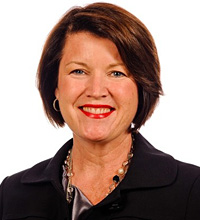Family members in a family enterprise are often isolated, having learned early on that to share stories of their business and family can end up hurting the business and all involved. Family business-focused peer groups offer a welcome reprieve from this isolation. They normalize the individual’s experiences and provide opportunities to share with and learn from colleagues who become trusted friends and advisors.
At Loyola University’s Family Business Center, we have created peer groups by matching individuals who possess a desire to learn from one another and have a willingness to go deeper, trusting that they have something to offer and can learn from each other in a confidential group setting. Groups are comprised of family business leaders, next gens working in the business, shareholders/family governance leaders, non-family executives and CEOs/presidents.
Here are some highlights of our process:
- Group Purpose
Each group must determine its purpose, focus and direction. The composition of the group may contribute to the group focus. Some groups are business focused, acting as informal trusted advisors to one another. In a CEO or C-level group, members might share financials, using a presentation style that mimics the board room. Other groups might be made up of next generation family members, seeking to build business skills and share personal struggles and successes around generational transitions of ownership and management.
Whatever the focus or purpose of the group, it doesn’t mean it can’t also leave room for vulnerability and emotion. The power of the group is commensurate with the trust members have for one another.
- Role of Group Members
The behavior of an individual in the group may mirror or reflect the way he or she behaves in key relationships outside the group. Participants can use the group to test alternative strategies or behaviors they wish to practice with their own family members. When group members can practice a difficult conversation, or acknowledge another member’s behavior as being bothersome, they may be able to bring these new skills outside of the group and into their work and home environments.
Group members participate in creating, and learn to practice accountability and commitment with one another, e.g., to be open, honest and willing to share both good and bad news and to respond to questioning from their fellow members. If a member is demonstrating a lack of commitment, e.g. coming late for or missing meetings, engaging in side-bar gossip or criticism of other members, helping but not revealing, the other members have a responsibility to address these behaviors in a thoughtful way within the group.
- The Role of the Facilitator
Group facilitators are self-aware, understanding both group dynamics and their own responsibility to provide psychological space for group needs and emotions. Facilitators experience and acknowledge what is present in the room and pay attention to expressed and unexpressed authority, leadership and roles within the group.
Beyond providing administrative support for meeting times, dates and topics, facilitators are most effective when they are self-aware. For example, having an awareness of a desire to “fix or change” the group or an individual can be offset by trusting the group to process and be accountable to one another. The facilitator’s knowledge of him or herself, coupled with the ability to be fully present, creates a sense of trust for the group.
- Setting Up a Group for Success
- Create a written formal process to sign non-disclosure agreements. Confidentiality and trust are the foundation of high performing groups.
- Conduct an annual “group inventory” to review expectations and satisfaction individuals and the group experience to increase group functionality.
- Limit the group size. Eight to ten members allows for diversity of thought, experience and opinion. Numbers higher or lower than this can destabilize the balance and performance of the group.
- Establish an annual calendar of agreed-upon meeting dates. An agreed-upon calendar increases attendance, accountability and commitment to the group.
- Establish at least a two-year participation commitment. This allows for the natural group formation process (forming, storming, norming, performing) to proceed. Ideally, change in the group’s facilitator or members will be rare since these changes erode trust and affect the performance and stability of the group.
- Create clear guidelines around group attendance and group norms. These guidelines help current and new members understand the culture of the group they are joining or co-creating.
- Develop processes for recruiting into a current group or establishing a new group. The facilitator or group organizer should survey possible new members for leadership potential, testing for interests and measuring interest levels. Member-to-member recruitment into a newly formed group is powerful. Matching members into a new group is an art that requires one-to-one interviews and connection between the facilitator and prospective group members.
- Clarify the rules for competitors and multiple family members being in the same group. Typically this does not enhance the learning experience.
- Ending a Group
The book Necessary Losses, by Dr. Henry Cloud, is essential reading for anyone interested in understanding when to end a group – or endings in general. Every group has work to do, whether it is clearly articulated or not, and groups have a natural life span. Sometimes a group has completed its work and should end.
However, group members rarely want to acknowledge the need to end the group when they are together. Like a family that wants to keep all members together, regardless of what is best for the individual, they often prevaricate even when the group is no longer functioning. They benefit from a facilitator who can help them close that chapter of their relationship to one another with respect and gratitude. And…when appropriate, think through how, if and when new groups can be started.
About the contributor
 Anne Smart, CFBA, is director of the Family Business Center at Loyola University in Chicago. The Center has been supporting its member businesses and families, their employees and communities for 26 years and its previous directors include FFI Fellows Drew Mendoza and Andrew Keyt. The Center is a sponsor of the 2017 FFI Research &Education Symposium on October 28. Anne can be reached at [email protected].
Anne Smart, CFBA, is director of the Family Business Center at Loyola University in Chicago. The Center has been supporting its member businesses and families, their employees and communities for 26 years and its previous directors include FFI Fellows Drew Mendoza and Andrew Keyt. The Center is a sponsor of the 2017 FFI Research &Education Symposium on October 28. Anne can be reached at [email protected].




